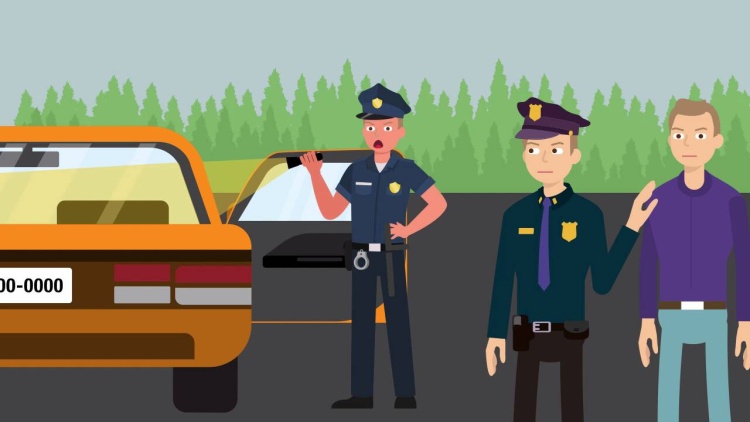Michigan v. Long
United States Supreme Court
463 U.S. 1032 (1983)

- Written by Sean Carroll, JD
Facts
David Long (defendant) was stopped by police when officers observed Long’s car swerve into a ditch after he had been traveling erratically at a high speed. Long met the officers at the rear of the car and did not respond to officers’ repeated requests to produce his vehicle registration. The officers believed that Long might have been under the influence of some substance. Long began walking toward the car’s open driver-side door. The officers followed him and saw a large hunting knife on the driver-side floorboard. At that point, officers conducted a protective patdown to check Long for weapons, but they did not find anything. One of the officers then shined his flashlight into the car to check for other weapons. The officer saw something sticking out from under the front armrest, and when the officer lifted the armrest, he found a pouch of marijuana. The officers then arrested Long and searched the rest of the car. They found no other contraband or weapons in the car’s interior. Officers then decided to impound the car, and when one officer opened the car’s unlocked trunk, he found 75 pounds of marijuana inside. Long was charged with possession of marijuana. He moved to suppress the marijuana found in the car’s interior and trunk, but the trial court denied the motion. Long was convicted. Long’s appeal reached the Michigan Supreme Court, which reversed on the ground that the search of the car’s interior went beyond that permitted by Terry v. Ohio. The Michigan Supreme Court concluded that the marijuana found in the trunk was therefore fruit of the poisonous tree and suppressed the evidence. The United States Supreme Court granted certiorari.
Rule of Law
Issue
Holding and Reasoning (O’Connor, J.)
Dissent (Brennan, J.)
Dissent (Stevens, J.)
What to do next…
Here's why 904,000 law students have relied on our case briefs:
- Written by law professors and practitioners, not other law students. 47,100 briefs, keyed to 995 casebooks. Top-notch customer support.
- The right amount of information, includes the facts, issues, rule of law, holding and reasoning, and any concurrences and dissents.
- Access in your classes, works on your mobile and tablet. Massive library of related video lessons and high quality multiple-choice questions.
- Easy to use, uniform format for every case brief. Written in plain English, not in legalese. Our briefs summarize and simplify; they don’t just repeat the court’s language.





